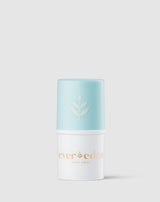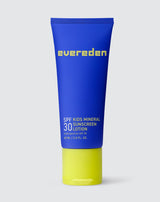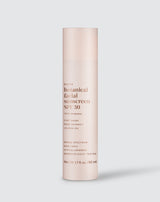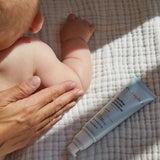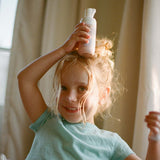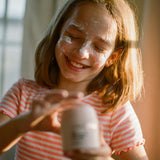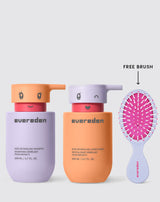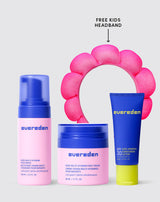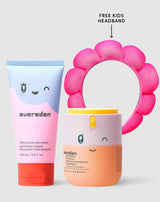In collaboration with Ovia Health—a family of apps for every stage: from cycle tracking and trying to conceive, to pregnancy and parenthood. Download the app that's right for you to get daily, personalized family health support.
If you have already successfully and single-handedly applied sunscreen to your little one, please congratulate yourself–it’s truly an achievement.
First of all, there’s nothing wrong with a two-year-old being squirmy; in fact, it’s one of the character-traits they’re best known for. As you’ve certainly noticed, squirminess only becomes a problem when it’s time for your little one to stay still. Getting Baby to cooperate can be quite a challenge, but fun in the sun gets a whole lot more fun when you’ve had a successful pre-sun slathering – and it stays fun a lot longer.
Can I just apply the sunscreen willy-nilly? Yes, but you may not be as effective as you–or Baby–will want you to have been later.
Why does my toddler need a sunscreen?
Toddlers’ skin is thinner than adults’ skin, and that’s why toddlers are more prone to sunburn. A sunburn is considered a first-degree burn, and applying sunscreen will prevent the sun’s rays from damaging your kid’s sensitive skin.
Sunscreen should be rubbed evenly onto all areas of the skin (even the ones that will be covered by a swimsuit) 30 minutes before sun exposure, according to the American Academy of Dermatology. This will ensure that the sunscreen will bind fully to your little one’s skin.
Which sunscreen is best for my child?
Using sunscreen is the first and most important thing, but if you can, it can be a good idea to avoid sunscreen that uses oxybenzone or avobenzone as ingredients. However, titanium dioxide and zinc oxide are okay for toddlers.
Some families prefer the spray-on version of sunscreen because it is easier to apply, especially to squirmy kids, but that comes with risks–according to the FDA, spray sunscreen may trigger an asthma attack, wheezing, or coughing.
How to apply sunscreen to a squirmy 2-year-old
- Allergy test: Before you thoroughly apply a new kind of sunscreen to your child, make sure that you perform an allergy test first by applying a pea-sized amount of the sunscreen on her forearm. An allergic reaction like redness may happen in as little as five minutes to an hour. If nothing happens, you can safely use the sunscreen.
- Explain: Talk to Baby what you’re going to do and why it’s important – you may be surprised by a little more cooperation than you were expecting.
- Set an example: Toddlers respond better to an explanation when they have some idea of what they’re in for, and they’re more likely to see something as normal if their parents or caregivers do it too. Plus, it’s good for you! So while you’re telling Baby about why it’s important for her to wear sunscreen, feel free to give her a practical demonstration of what that means on your own skin.
- Distraction: this is one of the most effective methods of dealing with a squirmy toddler. Work as quickly as you can because toddlers have a very short attention span. Keep your child’s favorite things on hand just in case he or she gets tired of one thing and asks for another. Usually, allowing a toddler to play or watch a favorite show on his or her tablet works just fine.
- Apply the sunscreen at home: Why? Because when Baby sees a body of water, or the kids happily swimming in it, your chances of getting her to stay still long enough to put sunscreen on her go way down.
Best of luck to you!
Reviewed by the Ovia Health Clinical Team
Sources
- “How to decode sunscreen lingo.” American Academy of Dermatology. American Academy of Dermatology. Retrieved December 12 2017. https://www.aad.org/public/spot-skin-cancer/learn-about-skin-cancer/prevent/sunscreen-labels/how-to-decode-sunscreen-lingo.
- “Sun safety: Information for parents about sunburn and sunscreen.” HealthyChildren. American Academy of Pediatrics, April 1 2014. Retrieved December 12 2017. https://www.healthychildren.org/English/safety-prevention/at-play/Pages/Sun-Safety.aspx.
- “The first steps of sun protection: how to keep your baby safe.” American Academy of Dermatology. American Academy of Dermatology. Retrieved December 12 2017. https://www.aad.org/media/news-releases/the-first-steps-of-sun-protection-how-to-keep-your-baby-safe.


